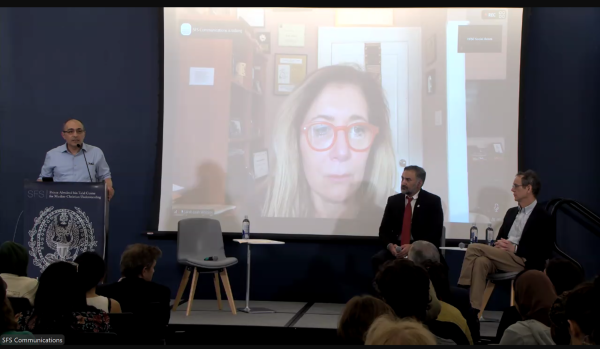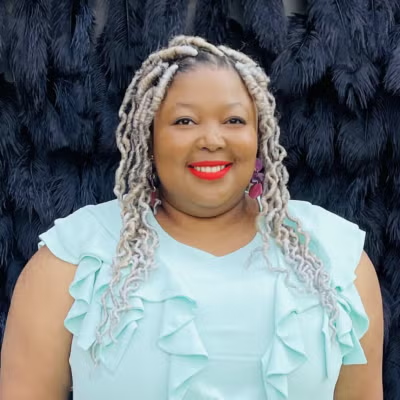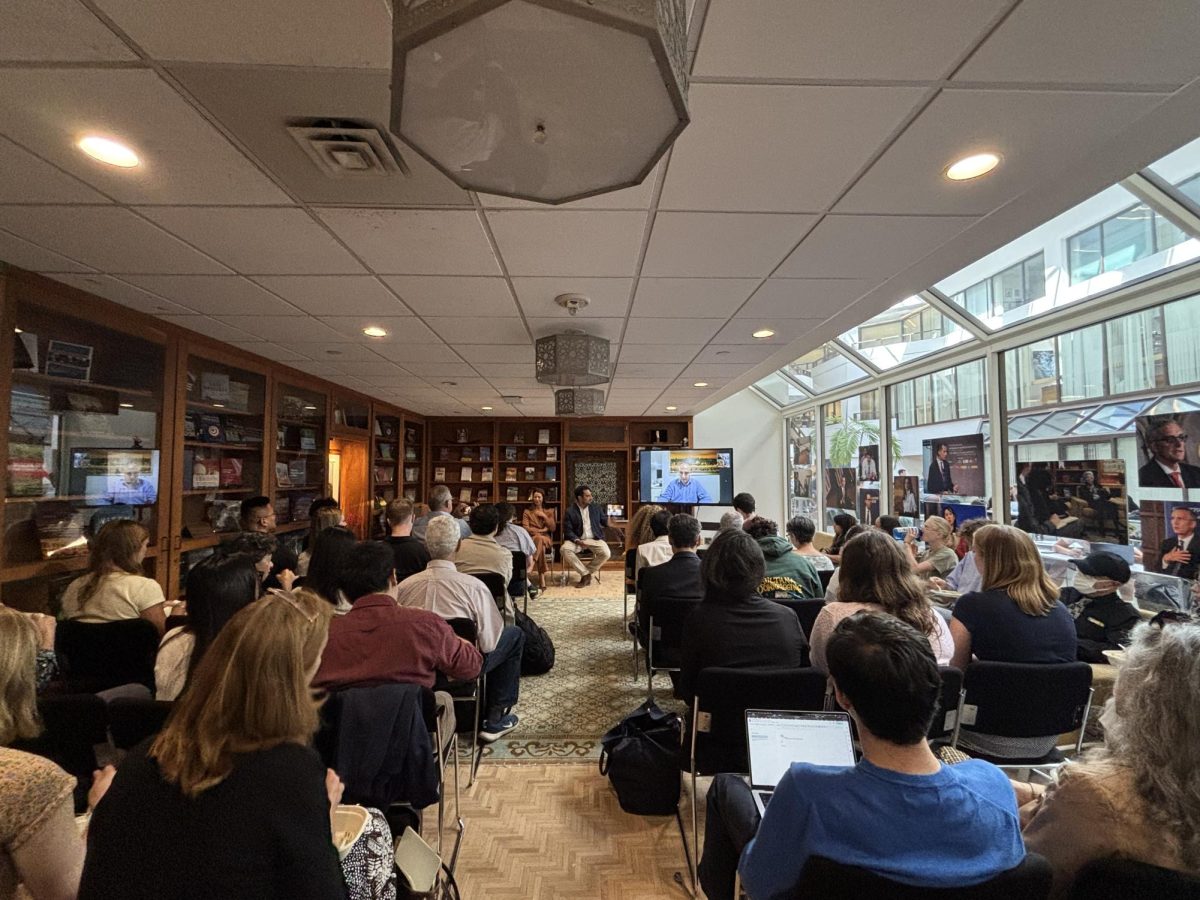The lawyer defending federally detained Georgetown University researcher Badar Khan Suri and two legal experts affirmed Khan Suri’s legal rights and argued against his detainment at a panel event April 14.
The panel — organized by the Prince Alwaleed Bin Talal Center for Muslim-Christian Understanding (ACMCU), a program in the School of Foreign Service where Khan Suri worked — hosted Hassan Ahmad, Khan Suri’s lawyer; David Cole, a Georgetown University Law Center professor specializing in civil rights; and Sarah Leah Witson, executive director of non-profit Democracy for the Arab World Now (DAWN). The panelists contended Khan Suri’s detainment is unjust and expressed concern that the Trump administration is destroying the rule of law.

ACMCU director Nader Hashemi moderated the panel and provided updates on Khan Suri’s detention. According to Hashemi, who visited Khan Suri in a Texas U.S. Immigration and Customs Enforcement (ICE) detention center April 13, Khan Suri has “been through hell” but is grateful for the support of the Georgetown community.
Hashemi said the other prisoners call him “Gandhi” because Khan Suri, who is Indian, teaches them about Indian anti-colonial activist Mahatma Gandhi and South African anti-apartheid activist Nelson Mandela.
“He explicitly told me that they are his role models during this dark time in his life, notwithstanding the trauma that he and his family have been subjected to,” Hashemi said during the event. “His spirits are strong. He is in it for the long haul.”
Ahmad said federal law treats non-citizens unjustly because immigration courts do not require a jury.
“There’s no presumption of innocence in immigration court, yet he’s locked up, chained, shackled and treated like a criminal — put in with criminals — even though he has done nothing wrong, and the government has said he has done nothing wrong,” Ahmad said during the event.
U.S. Secretary of State Marco Rubio claimed authority to detain Khan Suri and other non-citizens based on a section of the Immigration and Nationality Act that empowers the secretary of state to identify and deport individuals who pose “potentially serious adverse foreign policy consequences for the United States,” a provision Khan Suri’s lawyers say has been “rarely used” before now.
Ahmad said Rubio is subverting democratic norms by threatening non-citizens’ due process rights, which guarantee fair legal proceedings, and limiting judicial oversight.
“Under this foreign policy ground, the secretary of state can write up any letter that he wants,” Ahmad said. “He could ChatGPT a letter if he wanted to, and no court would have the power to say, ‘Wait a second. Where did you get that? What is your reasoning? Is this a reasonable determination or not?’”
“All we’re asking is that a court be empowered to actually say, ‘Hey, show him that, and get him the due process that he and anyone else in his position actually deserves,’” Ahmad added.
Hashemi said the event aimed to highlight the illegality of Khan Suri’s detainment.
“Objectively speaking, Badar Khan Suri is a prisoner of conscience,” Hashemi wrote to The Hoya. “Drawing attention to his plight was a purpose of the event. The second purpose of the event was to discuss the broader political, legal and moral principles that flow from Badar’s arrest and connect them to the rise of authoritarianism in the USA today led by Donald Trump.”
Cole connected Khan Suri’s case to a broader fight to uphold the United States’ commitment to free speech, saying immigrants’ First Amendment rights are crucial.
“That freedom is critical, because if many millions of people who live among us — who are our neighbors, who are our classmates, who are our roommates — are foreign nationals, and they can be deported for saying something that those of us who are citizens can’t even be punished for, that we don’t live in a society that respects free speech,” Cole said at the event. “We don’t have free speech.”
Witson said the Trump administration’s effort to target legal immigrants demonstrates a worrying departure from the rule of law and respect for immigration processes.
“We are now seeing another novel development, which is downgrading the green card, downgrading permanent residency status,” Witson said at the event. “Next that will follow is the Trump administration’s effort to target naturalized citizens, to strip them of their citizenship under the same arcane limited laws.”
Cole encouraged students to engage in political protests, saying opposition movements are the core of democracies.
“That’s what distinguishes constitutional democracies from autocracies,” Cole said. “It is the strength of civil society. So I think it is absolutely critical that we be standing up and speaking out and organizing and protesting.”
Hashemi said Georgetown students should demonstrate, educate themselves and mobilize against the Trump administration to help defend Khan Suri.
“I would like the GU community to know that Badar Khan Suri’s arrest profoundly matters,” Hashemi wrote. “Students who care about democracy need to act fast. Every wrongful arrest of an international student that goes unanswered emboldens authoritarianism. If there is no resistance, more innocent people will be detained, eventually US citizens.”
“Members of the GU community need to educate themselves on the political dangers that we face at this critical moment in our history,” Hashemi added. “Tomorrow could be too late.”
Ari Citrin contributed to reporting.








